The entertainment and hospitality industries, which include hotels, resorts, travel agencies, streaming services, and event organizers, handle sensitive customer data such as personal information, payment details, and sometimes even intellectual property. These sectors are frequent targets of cyberattacks, and they must adhere to various cybersecurity regulations and standards to safeguard customer data, ensure service continuity, and comply with legal requirements.
Cybersecurity Regulations for Entertainment & Hospitality
1. Payment Card Industry Data Security Standard (PCI DSS)
- Applicability: Any organization that processes, stores, or transmits credit card information.
- Requirements:
- Encrypt cardholder data during transmission.
- Maintain secure payment systems with firewalls and antivirus software.
- Conduct regular vulnerability assessments and penetration testing.
2. General Data Protection Regulation (GDPR)
- Applicability: Organizations handling personal data of European Union (EU) residents.
- Requirements:
- Obtain explicit consent for collecting and processing personal data.
- Encrypt customer data and provide mechanisms for data access, deletion, and correction.
- Report data breaches to authorities within 72 hours.
3. California Consumer Privacy Act (CCPA/CPRA)
- Applicability: Organizations serving California residents.
- Requirements:
- Allow customers to access, delete, or opt-out of the sale of their data.
- Ensure reasonable data security measures to protect customer information.
- Provide clear privacy policies detailing data usage.
4. New York SHIELD Act
- Applicability: Businesses collecting personal data of New York residents.
- Requirements:
- Implement reasonable safeguards for administrative, technical, and physical security.
- Notify affected parties promptly in case of a data breach.
5. Health Insurance Portability and Accountability Act (HIPAA)
- Applicability: Hospitality organizations offering wellness or medical services (e.g., spas, health resorts).
- Requirements:
- Protect any protected health information (PHI) collected.
- Conduct risk assessments to secure data and systems.
- Train employees on handling sensitive health data securely.
6. Federal Trade Commission (FTC) Safeguards Rule
- Applicability: Businesses that maintain customer financial information.
- Requirements:
- Develop and implement a comprehensive information security program.
- Regularly assess risks to customer information.
- Use encryption and secure access controls for sensitive data.
7. Children’s Online Privacy Protection Act (COPPA)
- Applicability: Online entertainment platforms targeting children under 13.
- Requirements:
- Obtain parental consent before collecting personal information.
- Clearly disclose data collection practices.
8. Industry-Specific Cybersecurity Standards
- Entertainment Streaming Services:
- Adhere to Digital Millennium Copyright Act (DMCA) for protecting intellectual property.
- Secure content delivery networks (CDNs) against piracy and breaches.
- Hospitality Chains:
- Comply with franchise-level cybersecurity policies and brand standards.
Key Cybersecurity Best Practices for Entertainment & Hospitality
1. Secure Customer Data
- Encrypt customer records, including personal information, payment details, and booking history.
2. Implement Access Controls
- Use role-based access control (RBAC) and multi-factor authentication (MFA) to limit access to sensitive systems.
3. Train Employees
- Educate staff on recognizing phishing attempts, securely handling customer data, and responding to security incidents.
4. Protect Operational Technology (OT)
- Secure connected devices, such as smart room systems and point-of-sale (POS) terminals, from cyber threats.
5. Conduct Risk Assessments
- Regularly identify and mitigate vulnerabilities in IT infrastructure.
6. Monitor Networks
- Use intrusion detection systems (IDS) and firewalls to monitor and protect against unauthorized access.
7. Secure Third-Party Vendors
- Ensure that all vendors and partners comply with data protection and cybersecurity standards.
8. Implement Incident Response Plans
- Prepare a detailed plan for managing data breaches and minimizing their impact.
9. Compliance Audits
- Conduct regular reviews to ensure adherence to applicable regulations and standards.
Cybersecurity Challenges for Entertainment & Hospitality
- High Volume of Personal Data: These industries handle large amounts of personal and financial data, making them prime targets for hackers.
- Distributed Networks: Global operations, including branch locations and remote teams, increase the attack surface.
- Third-Party Risks: Reliance on external vendors for payment processing, booking systems, and IT services introduces vulnerabilities.
- IoT Vulnerabilities: Smart devices and connected systems used in hotels and entertainment venues can be exploited if not secured.
- Reputation Damage: A single data breach can lead to significant reputational and financial losses.
Conclusion
Entertainment and hospitality companies must navigate a complex regulatory landscape to ensure cybersecurity compliance. Regulations like PCI DSS, GDPR, and CCPA mandate robust protections for customer data, while industry-specific challenges require tailored solutions. By implementing best practices such as data encryption, employee training, and regular audits, organizations can mitigate risks, protect sensitive data, and maintain customer trust in an increasingly digital and interconnected world.

